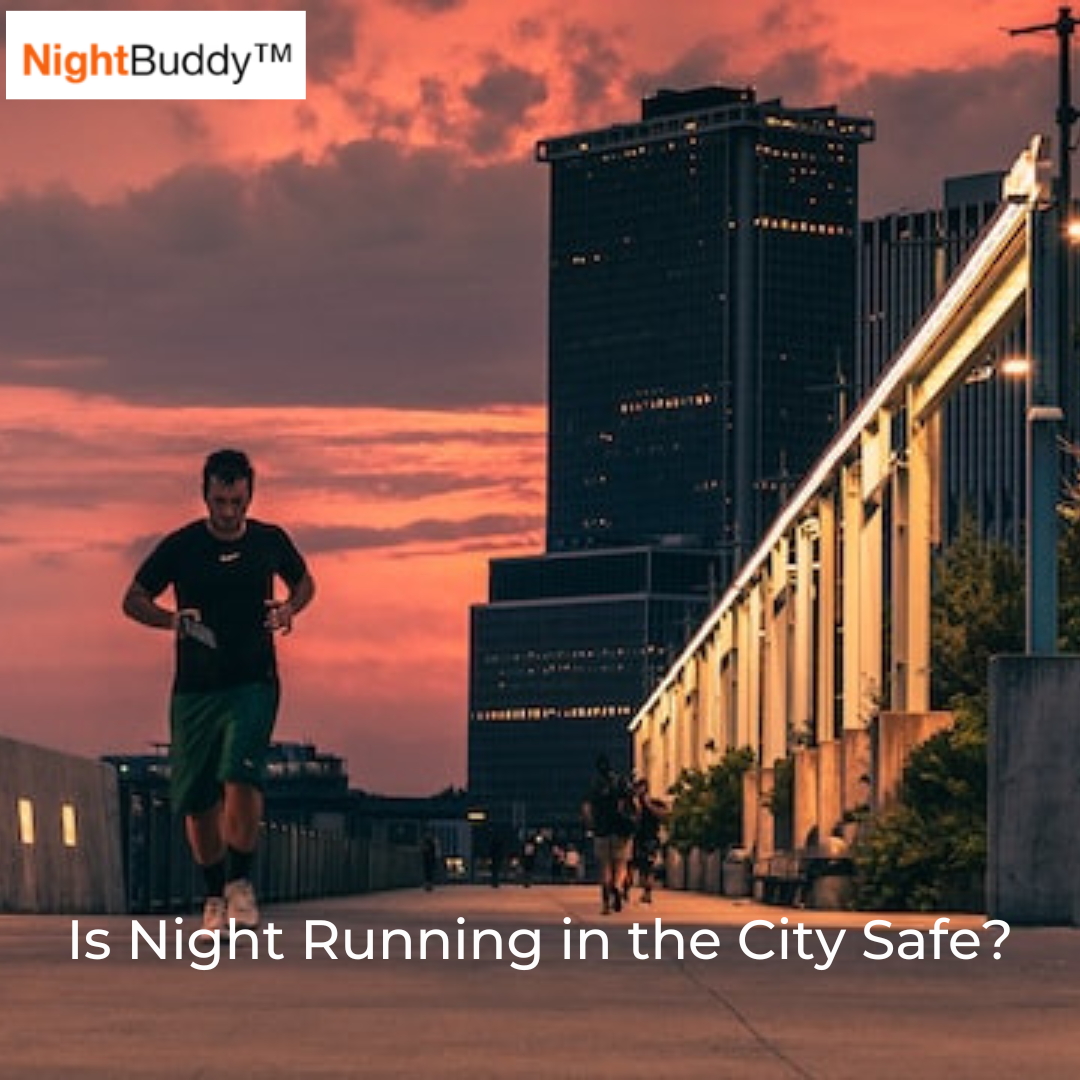Yes, it is safe to run in the night. Running at night in the city can present some safety challenges, running under the night sky can be a peaceful and exhilarating experience when done properly.
Whether you're training for a race, trying to beat the heat, or simply prefer running under the stars, it's important to take precautions to ensure your personal safety.

In this article, we'll explain why night running in the city is safe, explore the myths around night running in the city and offer personal safety tips to ensure maximum safety on your nighttime run.
13 Ways To Stay Safe While Running at Night:
The following guide to safety will help you as a nighttime runner:
#1. Run Against Traffic
A crucial safety tip when running on roads, it's important to run against traffic. This means running on the side of the road where cars are approaching you. By doing so, you can see oncoming traffic and react accordingly to avoid potential collisions.
Running with traffic can make it difficult to see or hear approaching cars, increasing the risk of accidents. So, always run against traffic to stay safe.
#2. Vary Your Route and Time
To avoid becoming predictable and potentially vulnerable to attacks, vary your running route and time. Mix up your routes, alternate between running in residential and commercial areas, and try to avoid running the same route at the same time of day every day.
This is a crucial personal safety tip as it can make it more difficult for someone to track your movements and plan an attack. Varying your running time also means you get to experience different parts of the city and discover new routes to keep things interesting.
#3. Wear reflective colors for visibility
When running in the dark, it's essential to be visible to motorists and other pedestrians. That's why it's important to wear reflective colors. Reflective materials reflect light, making you more visible to drivers.
Many running clothes have reflective strips or logos on top of their solid color, but you can also purchase reflective vests or armbands to wear over your regular clothing.
#4. Use a headtorch
Headtorches for runners are an essential tool for runners who run in the dark. Its bright light illuminates the path ahead, making it easier to see where you're going.
A headtorch also helps you be more visible to motorists and other pedestrians. Make sure your head lamp has a red light setting as well, so you don't blind other runners or pedestrians.
#5. Get a Running Partner
Running with a friend can make the experience more enjoyable and also safer. You can keep each other motivated and accountable while also looking out to ensure maximum safety for each other.
If you don't have a running partner, consider joining a running group. Running groups often meet early in the morning or after work, making them a great option for nighttime runners.
#6. Stay on well-lit routes
Running on well-lit routes is essential for your safety and night vision. Choose routes that are well-lit, so you can see where you're going and be visible to others.
Avoid running in unlit areas, especially if you're alone. If you're not familiar with the area, take some time to explore during the day, so you can understand the state of the streets at night.
#7. Stay alert and be aware of your surroundings
When running on the streets at night, it's important to be aware of your surroundings. Stay alert to any potential hazards, such as uneven pavement or debris on the ground. Be aware of any cars, bikes, or pedestrians that may be approaching, and move out of the way if necessary.
#8 Carry a phone and ID
In case of an emergency, it's a crucial safety tip to have a phone or some form of identification with you. If you're injured or lost, a phone can be a lifeline to emergency services or your running buddy.
An ID can also be helpful if you need medical attention or if you're lost and someone needs to contact your family or friends.
#9 Check the weather
Before heading out for a night run, make sure to check the weather forecast. You don't want to be caught in a thunderstorm or other severe weather conditions. If the forecast calls for bad weather, it's best to postpone your run until conditions are safer.
#10 Charge your gear
Make sure to charge your headlamp and any other gear you plan on bringing with you, such as a phone or GPS watch. You don't want to be caught with dead batteries in the middle of your run.
#11 Eat and hydrate properly
Just like with any exercise, it's important to fuel your body properly before a night run. Eat a balanced meal a few hours before your run, and make sure to hydrate throughout the day. Bring a water bottle with you on your run, especially if it's a longer run.
#12 Plan your route
Plan your route before heading out for a night run. Make sure it's well-lit, and avoid any areas that you're not familiar with. Let someone know your route and expected return time, so they can check on you if necessary.
#13 Dress appropriately
Dress appropriately for the weather conditions, and wear bright colors or have high-visibility reflective bands on your solid colors. If it's cold outside, wear layers that you can remove as you warm up. Wear a hat and gloves to keep your extremities warm. If it's hot outside, wear breathable, moisture-wicking clothing to prevent overheating.
Why makes it safe for runners to run at night in the city?

1. Fewer people on the streets
2. Better visibility
3. Less traffic
4. Increased sense of security
Read more: What to do the night before your big race





Leave a comment
This site is protected by hCaptcha and the hCaptcha Privacy Policy and Terms of Service apply.